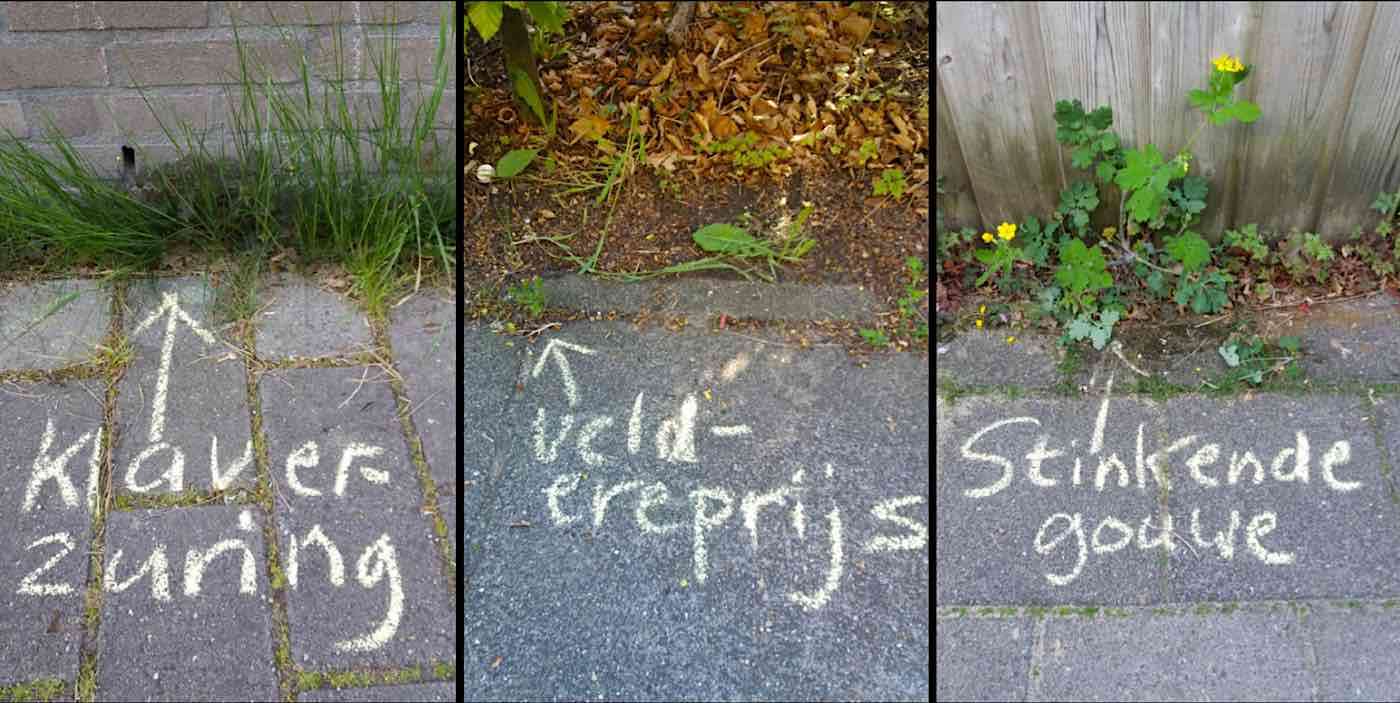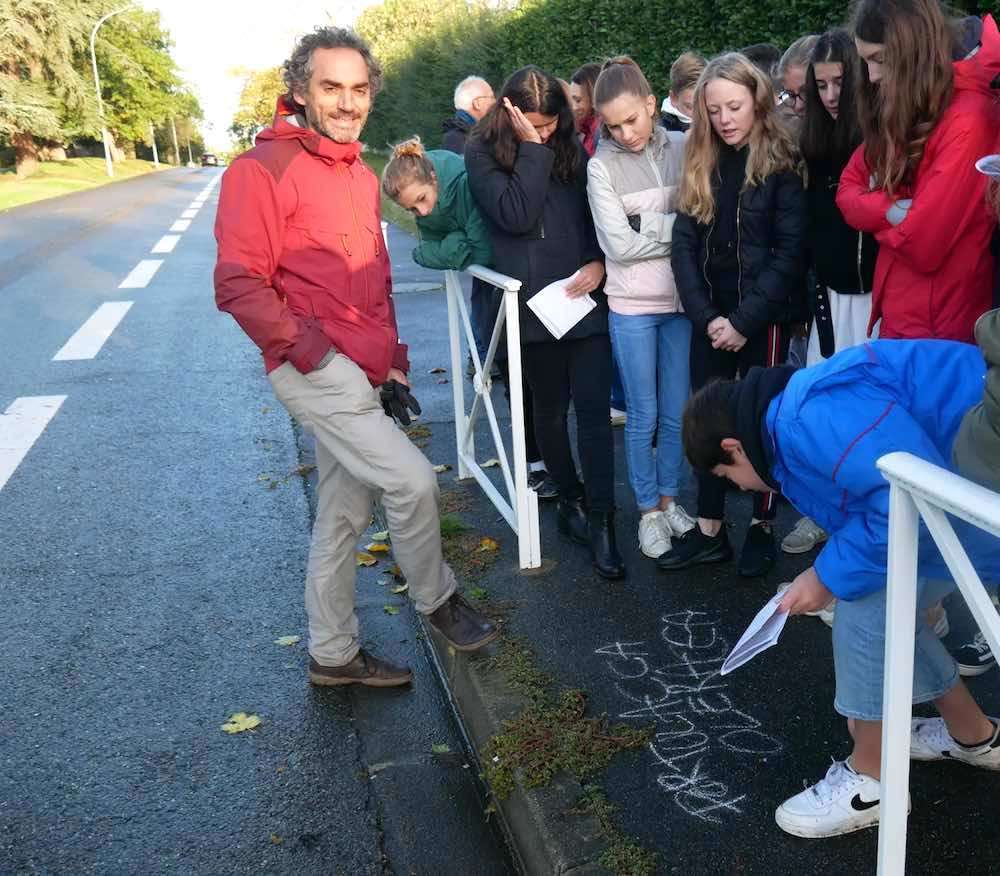Global Greenhouse Gas Emissions Estimated to Fall by 8% in 2020-the Largest Recorded Drop in History
Although the COVID-19 outbreaks have shocked global economies, new research says it could be the key to defeating climate change.

Across the paved streets of the UK and France, sidewalk chalk is beginning to be employed by more than just children as rebel botanists regularly break street-chalking laws to write the names of wild plants and flowers growing through cracks in the cement.
Beginning in France-and leading to a campaign called More Than Weeds in London-this act of highlighting the names of wildflowers and other plants has drawn significant attention on social media, where images and videos are racking up hundreds of thousands of fans.
In one video viewed 7 million times from the French website Brut, Boris Presseq, a botanist at the Toulouse Museum of Natural History, walks around his city chalking the names of the plants he finds on sidewalks and walls to help raise awareness of the diversity and richness of plant citizens in the heart of the southern French city.
"I wanted to raise awareness of the presence, knowledge and respect of these wild plants on sidewalks. People who had never taken the time to observe these plants now tell me their view has changed. Schools have contacted me since to work with students on nature in the city," Presseq told the Guardian.
In one of those "every day you break 3 laws you didn't know existed" moments, it is illegal to use sidewalk chalk on public pavement without permission for any reason. However, no one in London, Cambridge, or Hackney seems to mind the graffiti, with one selection of identified plants posted by a London resident on Twitter receiving over 100k likes.
Botanical chalking is a sign of changing attitudes towards plants in English cities. In 2018, the Hackney town council reduced the amount of glyphosate used to control weeds by 50%, and last year trialed a glyphosate-free area to promote biodiversity and see if it was possible to maintain a high standard of sidewalk maintenance without the use of chemical herbicides.
Glyphosate is an ingredient present in many popular industrial and commercial herbicides that the International Agency for Research on Cancer has labeled a probable carcinogen.
Hundreds of insects species are deprived of food when glyphosate is used as an herbicide, which means hundreds of plant species nearby go without the needed pollinators. Critically, many species of plants considered weeds, such as dandelions which can thrive in urban environments actually provide more pollen-and human food-per flower than other, wilder species, according to a study which looked at 65 plants across six UK cities. They found that weed species occupied the top five spots for nectar sugar produced and two spots in the top ten for pollen production.

"Every flower counts and will be targeted by pollinators […]If we change our perceptions and see the dandelion flower for what it is - an absolute lifeline to our bees in early spring - we might learn to love them more." said UK Plantlife Spokesperson Trevor Dines speaking to the Guardian.
"One survey of pavements in Sheffield found 183 different plants, another in Cambridge found 186 species on walls. All these little micro niches build up to a wonderfully complex tapestry," he added.
Being able to see and identify a plant is important for a person to build an awareness or appreciation for plant life in the city. People who don't understand the name or function of a particular plant in an ecosystem like their yard are less-likely to be interested in them, just as they would if they were watching a sporting event without knowing the names or roles of any of the players.
"Botanical chalking gives a quick blast of nature connection, as the words encourage you to look up and notice the tree above you, the leaves, the bark, the insects, the sky. And that's all good for mental health," said one of the lawless, chalk-armed English botanical enthusiasts who spoke to the Guardian under conditions of anonymity in order to avoid fines up to £2,500 for graffiti.
"It's brought me a great amount of joy," they added.
SHARE The Idea on Social Media - And Join the More Than Weeds campaign on Twitter…
Be the first to comment